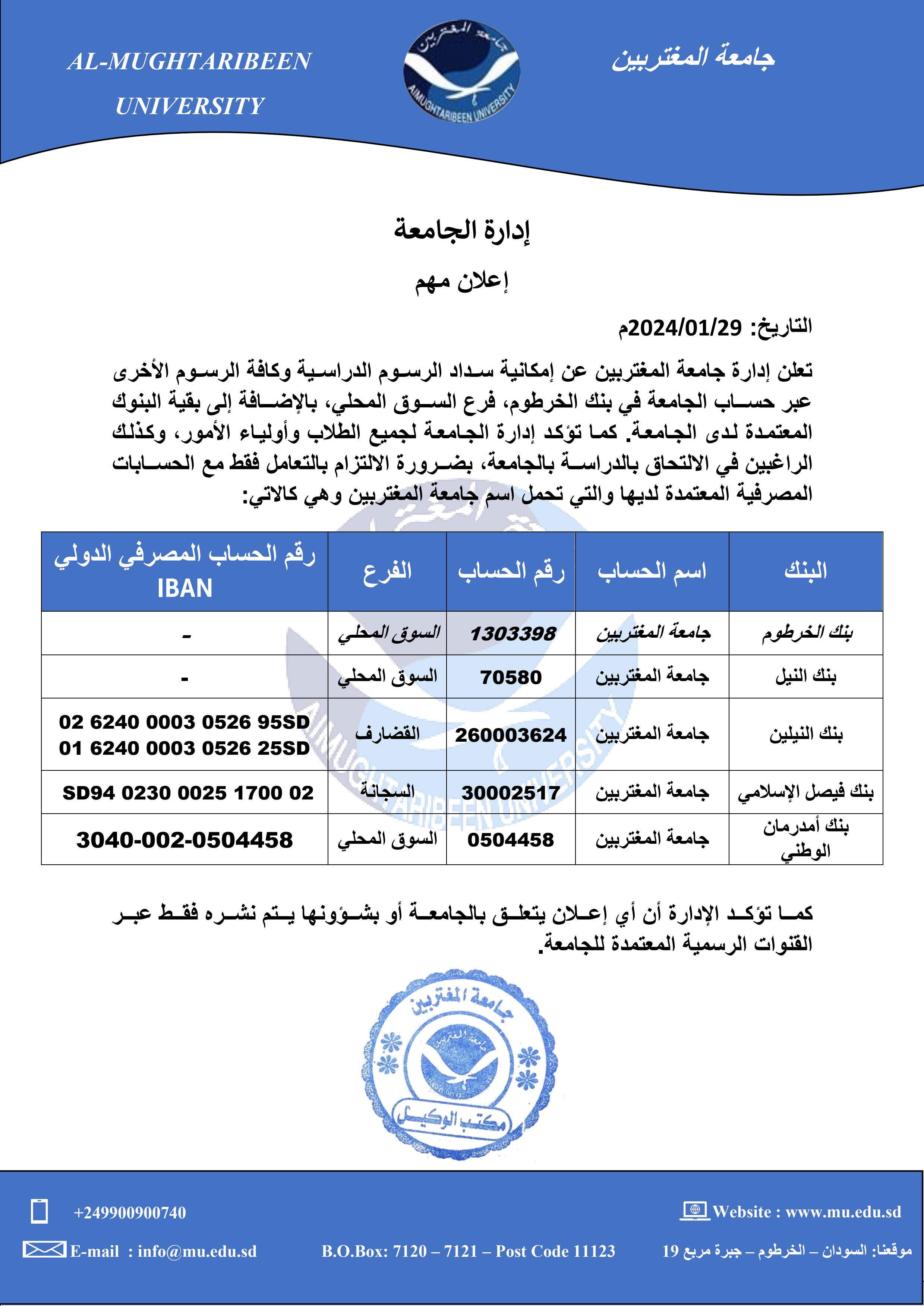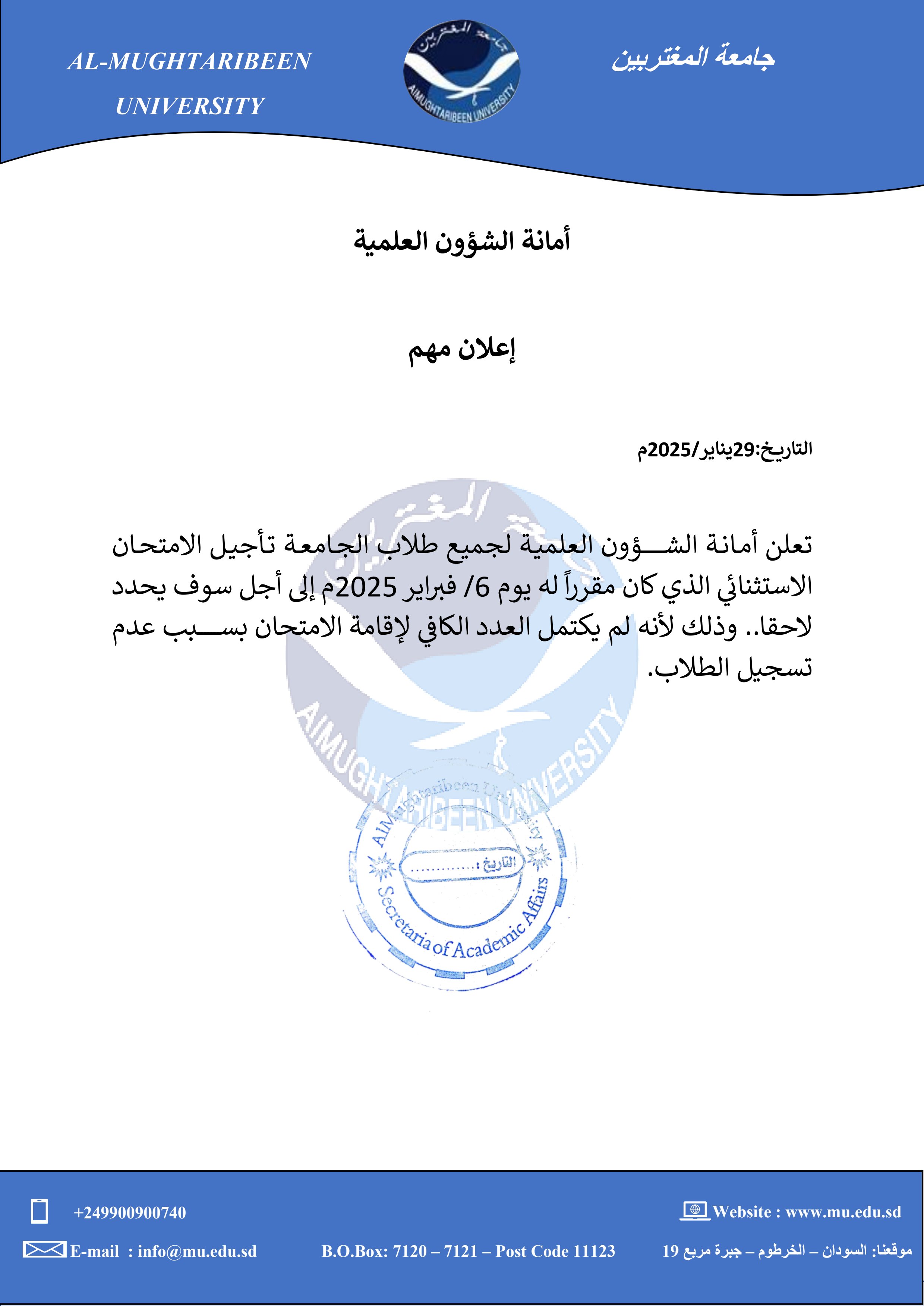
E-Learning
The university contributes to the shift toward distance learning by providing e-learning applications and tools
As part of the joint training program in the field of e-learning among Sudanese universities, the Deanship of Information Technology and Distance Education at the university, in partnership with the Committee of Deans of E-Learning and Distance Education in Sudanese Universities, announces a course.
E-Learning
News and Events
- All

2025-01-29 00:00:00
حسابات جامعة المغتربين

2025-01-29 00:00:00
إعلان تأجيل الامتحان الاستثنائ
7
Number of College
22
Number of Departments
146
Number of Semesters
45000
Number of Students